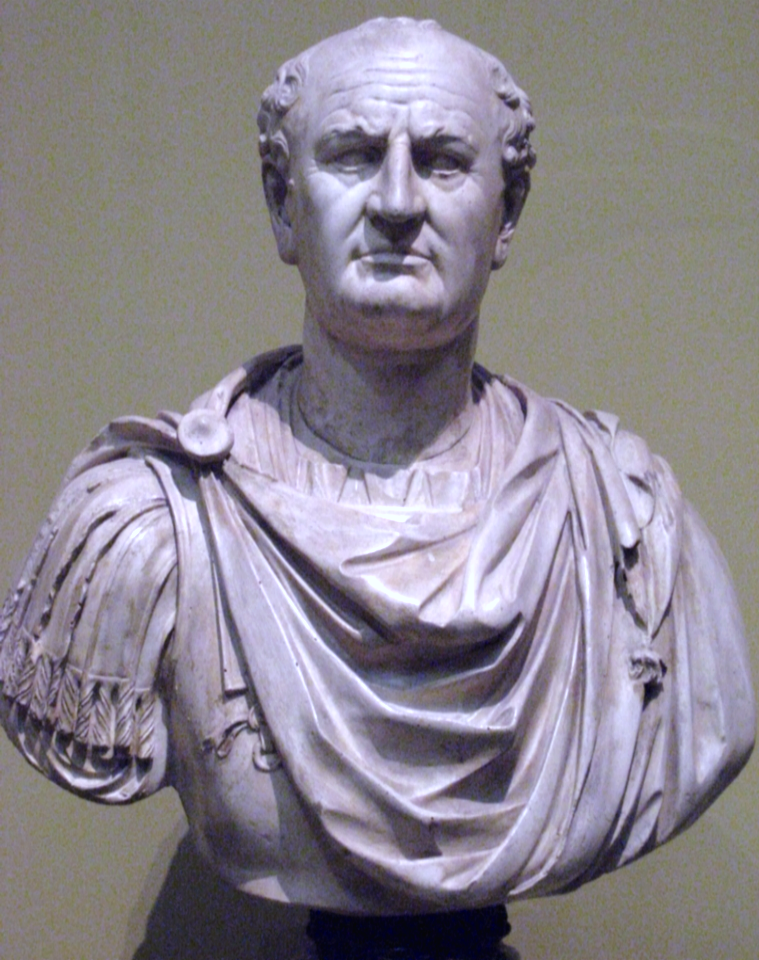 Titus Flavius Caesar Vespasianus Augustus, the ninth Emperor of Rome, was the son of a centurion and tax collector from central Italy. Young Vespasian worked his way up a series of public offices. One early post was an administrator in charge of street cleaning in Rome, where he was so unsuccessful that Caligula stuffed his toga full of mud from the streets. He was more successful as a military commander, winning numerous battles in Britain. Accounts differ regarding his rule as governor of Africa, but at one point he was pelted with turnips, so it couldn't have been all good. Following this he was lost in the political wilderness, reduced to the mule trade (earning him the nickname "mulio") and losing the favor of Nero after reportedly falling asleep during one of the Emperor's performances on the lyre.
Titus Flavius Caesar Vespasianus Augustus, the ninth Emperor of Rome, was the son of a centurion and tax collector from central Italy. Young Vespasian worked his way up a series of public offices. One early post was an administrator in charge of street cleaning in Rome, where he was so unsuccessful that Caligula stuffed his toga full of mud from the streets. He was more successful as a military commander, winning numerous battles in Britain. Accounts differ regarding his rule as governor of Africa, but at one point he was pelted with turnips, so it couldn't have been all good. Following this he was lost in the political wilderness, reduced to the mule trade (earning him the nickname "mulio") and losing the favor of Nero after reportedly falling asleep during one of the Emperor's performances on the lyre. Vespasian regained political power by again being a successful military commander, suppressing the Great Jewish Revolt. After Nero committed suicide, the Roman Empire was thrown into civil war and the throne changed hands multiple times in what became known as The Year of Four Emperors. Vespasian, with loyal troops behind him, was ready and defeated the forces of Vitellius. While Vespasian siezed control of the Empire, his son Titus finished off the Judean revolt, brutally capturing and sacking Jerusalem.
By all accounts, the reign of Emperor Vespasian was more successful than his previous attempts at public administration. He began construction of the Colosseum and many other public works. He was a generous patron of authors like Quintilian and Pliny the Elder. Philosophers, however, he viewed with contempt, thinking of them as complainers and reviving old laws against them. He even executed one of them, a persistent Stoic critic named Helvidius Priscus. His name lives on in many Romance languages as the name for a urinal, born from public complaints about a toilet tax he initiated.
Vespasian was felled by some illness marked by fever and severe diarrhea. On his deathbed, he ordered that he be helped to stand because "An Emperor should die on his feet." His last words were Væ, puto deus fio, "Oh! I think I'm becoming a god!" He died on June 23, 79 CE, succeeded as Emperor by his son Titus.
No comments:
Post a Comment